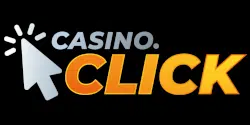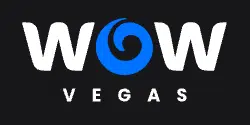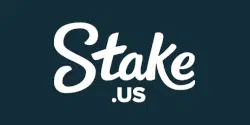Illinois Online Casinos
Illinois online casinos represent a massive but unrealized opportunity in a state where land-based operators and legal sportsbooks have set high expectations for their ability to generate tax revenue for the state.
Recent legislative proposals signal a renewed focus on tapping into the Illinois online gambling market. These efforts, driven by fiscal pressures and the growth of alternatives such as sweepstakes casinos, are gaining momentum. However, proponents still have significant challenges to overcome.
 200K GC + 20 SC + 10 Free SpinsCasino.Click Promo Code: None Needed
Gameplay can be harmful if not kept in control, please play responsibly. See https://casino.click/responsible-gaming. NO PURCHASE NECESSARY to enter Sweepstakes. SWEEPSTAKES ARE VOID WHERE PROHIBITED BY LAW. See T&Cs. Casino Click Social Gaming Platform is only open to Eligible Participants, who are at least eighteen (18) years old or the age of majority in their jurisdiction (whichever occurs later) at the time of entry. For detailed rules, see https://casino.click/sweeps-rules.
200K GC + 20 SC + 10 Free SpinsCasino.Click Promo Code: None Needed
Gameplay can be harmful if not kept in control, please play responsibly. See https://casino.click/responsible-gaming. NO PURCHASE NECESSARY to enter Sweepstakes. SWEEPSTAKES ARE VOID WHERE PROHIBITED BY LAW. See T&Cs. Casino Click Social Gaming Platform is only open to Eligible Participants, who are at least eighteen (18) years old or the age of majority in their jurisdiction (whichever occurs later) at the time of entry. For detailed rules, see https://casino.click/sweeps-rules.
Illinois Sweepstakes Casinos
In the absence of legal Illinois gambling sites, sweepstakes casinos have emerged as a strikingly similar alternative.
Sweepstakes (social) casinos avoid classification as “gambling” under Illinois law by offering methods of free entry. Hence, the classic sweepstakes line posted on every operator’s website: no purchase necessary.
Despite operating as sweepstakes promotions under state and federal law, these platforms offer:
- Casino-style games resembling online slots and real-money blackjack
- Live dealer games
- Pay tables identical to classic casino games
- Progressive jackpots
- Welcome bonuses
Players should note that Illinois does not regulate sweepstakes casinos, so it’s critical to use trusted and established operators only. BettingUSA recommends the following social casinos:
Legal Considerations
Although sweepstakes casinos face increasing regulatory pressure nationwide, including legislative efforts to ban them, they continue to operate without issue in Illinois.
State officials, including the Illinois Gaming Board, the Attorney General’s office, and state lottery regulators, have not taken an adversarial stance toward sweepstakes casinos.
Some states have also seen class action lawsuits filed against sweepstakes casinos, but Illinois has yet to experience similar legal challenges.
How Are Sweepstakes Casinos Legal in Illinois?
Sweepstakes casinos operate legally in Illinois by adhering to the Prizes and Gifts Act, which prohibits:
- Requiring a payment or purchase to participate in sweepstakes
- Offering participants greater chances of winning if they make a payment or purchase
- Taking longer than 30 days to award prizes to participants
Illinois sweepstakes casinos implement numerous measures to comply with the law, including:
- Providing free entry tokens via promotions
- Avoiding the direct sale of sweepstakes coins
- Awarding prizes as tokens redeemable for cash rather than direct cash payouts
Future Legal Issues Remain A Possibility
Increased scrutiny and legal action are likely if land-based casino operators back efforts to legalize online gambling.
Traditional casino operators have expressed concerns that online gambling could cannibalize retail revenue and will oppose any alternative models operating outside the established legal framework.
Will Illinois Legalize Online Casinos?
It’s too early to predict with any confidence whether Illinois will legalize online casinos over the near term.
Although Illinois online casinos could generate substantial tax revenue for the state, all legalization measures introduced to date have faced opposition arising from multiple concerns, including:
- Cannibalization of land-based casino revenue
- Job losses in the land-based casino sector
- Social impacts associated with online gambling
Factors Favoring Legalization
Challenges to Legalizing Online Gambling in Illinois
Opposition to legalizing online casinos in Illinois primarily revolves around its potential to cannibalize revenue from adjacent industries and negatively impact employment in the land-based gambling sector.
Illinois Online Gambling Market Potential
A report from the Analysis Group estimates that legal online casinos in Illinois could generate revenues of $1.3 billion in their first full year, increasing to $2.3 billion by Year 5.
Under a 25% tax model, those figures would result in roughly $325-$575 million in additional tax revenue for the state annually.
Similar estimates from a Vixio market forecast suggest tax revenue potential between $368 million and $693 million annually.
The following estimates illustrate the tax revenue potential of legal online gambling in Illinois based on the Analyst Group and Vixio forecasts under low, medium, and high tax frameworks.
Note: Excessive tax rates may negatively impact the total market size. However, experiences in high-tax states like Pennsylvania indicate that the increase in tax revenue offsets decreases in market size.
| Forecast | Estimated Market (GGR) | Tax Revenue Under A Low Tax Model (15%) | Tax Revenue Under A Medium Tax Model (25%) | Tax Revenue Under A High Tax Model (40%) |
| Year 1 (Analyst Group) | $1.3 Billion | $195 Million | $325 Million | $520 Million |
| Year 5 (Analyst Group) | $2.3 Billion | $345 Million | $575 Million | $920 Million |
| Year 5 (Vixio) | $2.1 Billion | $315 Million | $525 Million | $840 Million |
How Illinois May Regulate Online Casinos
If Illinois legalizes online gambling, regulatory measures will likely aim to balance open-market competition with protections for existing revenue sources and workers.
Based on recent proposals, key provisions may include the following:
Licensing Rules
- Tethering Requirement: Requiring online gambling operators to partner with land-based casinos or racetracks.
- Initial Licensing Fee: Recent bills have proposed a $250,00 initial licensing fee, but Illinois could easily go much higher. Some of the state’s earliest online gambling bills sought initial licensing fees of $10 million.
- Online Skins: Recent proposals would allow casinos and race tracks to operate up to three individual online brands (or “skins”), a more open-market approach than seen in Illinois online sports betting rules.
- Worker Protection Rules: Making online gambling licenses contingent on each casino maintaining a specified percentage of its current workforce.
Tax Policies
- Tax Rates: Illinois could enact a flat tax rate of around 25% on adjusted gross revenue or consider a graduated tax model to ensure higher-earning operators contribute proportionally more. Model legislation from the National Council of Legislators from Gaming States (NCLGS) suggests 15-25% tax rates. However, Illinois could also look to high-tax states like Pennsylvania to generate significantly more tax revenue.
- Revenue Allocation: Allocating tax revenue to a dedicated State Gaming Fund for regulatory oversight, infrastructure, or education.
Diversity, Equity, and Inclusion Requirements
- DEI Annual Reports: Recent bills from Illinois suggest diversity, equity, and inclusion (DEI) will play prominent roles in any regulatory framework. Illinois may require licensed online casino operators to submit annual reports on their procurement goals and spending for businesses owned by women, minorities, veterans, individuals with disabilities, and small businesses.
- DEI Workshops: Similarly, past proposals would require each licensed operator to hold an annual workshop/job fair on the current state of supplier diversity.
Responsible Gambling
- Operator Requirements: Requiring licensed online casinos to provide self-exclusion programs, custom deposit limits, and reality checks.
- Statewide Self-Exclusion Program: Establishing a statewide self-exclusion program covering all online casinos.
Illinois Online Gambling Legislative History
Illinois has been exploring legalizing online casinos and poker sites since 2013. Although all efforts to date have been unsuccessful, they provide insight into the state’s evolving approach to legalizing online gambling.




